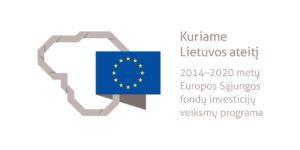EU support

Baltijos plienas, UAB, is implementing the EU Structural Funds project No 13.1.1-LVPA-T-858-01-0031 “Development of an innovative composite material for the destruction (or neutralisation) of bacterial, viral and fungicidal air pollutants”. The total value of the project is EUR 723,629.02, of which EUR 578,903.22 is from the European Regional Development Fund.
Support for the implementation of the project has been granted under Priority 1 “Promotion of Research, Experimental Development and Innovation” of the Operational Programme for Investment of the European Union Funds for 2014-2020, No. 01.2.1-LVPA-T-858 “COVID-19 R & D”.
More details:
SARS-CoV-2 virus is the cause of the COVID-19 pandemic currently spreading worldwide. Self-disinfectants play an important role in combating existing, emerging and future epidemics of bacterial and viral origin. Nanomaterials are the next generation of antiviral agents, given the potential offered by their unique chemical and physical properties.
The product to be developed in the project is a composite material consisting of a carrier in controlled fractions with a nanostructured ultra-thin surface functional coating composed of nanoparticles of specially oriented metals and/or other materials and additional materials that accumulate specially modulated electrical charges, which together with the carrier form a unique composite composition for the destruction of bacterial, viral and fungicidal airborne contaminants. The innovation of the composite is that different fractions of minerals can be given different functional coatings by selecting the optimum nanoparticle charge-to-mineral fraction ratios determined by research and experimental testing.
The innovative composite material developed in the project has a wide range of applications: it can be used to fill air filter cartridges in air-conditioners, ventilation systems, air purification units, and as a filler material in respirators and breathing apparatus. Such air disinfection systems can be used in medical, residential, public, industrial buildings and facilities, public transport systems – wherever air flow can be controlled.
The most important benefit for consumers and for the Lithuanian healthcare system in general is the activity of the new product against coronaviruses. The use of the new material in air purification, air conditioning and ventilation systems will help to protect against the transmission and spread of coronavirus and significantly increase public safety during pandemics. A very important feature is the long-lasting self-disinfecting effect, which eliminates the need for additional disinfection of the premises and reduces costs. The economic benefits are also relevant as a lot of public and public money is spent on short-acting disinfectants, especially during pandemics. The new product’s activity against coronaviruses and durability will help reduce these costs. The environmental impact is also important: the increased production of disinfectants and protectants around the world is becoming a global problem, with poor management of this waste and its packaging polluting the environment. The new material is not toxic or hazardous to the environment and can therefore be disposed of in accordance with general waste management rules.
The R&D activities carried out during the project and the results obtained during the year, as well as the product developed, will be used for the development of the products and technologies foreseen in the project as well as for the development of other new products and technologies. After the project, it is planned to continue the R&D activities in order to develop new technologies and products.
The launch of new products will help to increase the company’s competitiveness and turnover. The company plans to continue to intensify its R&D activities.
The project activities are expected to be completed by 30 April 2022.
The project is financed by the European Regional Development Fund. It is funded as part of the European Union’s response to the COVID-19 pandemic.

